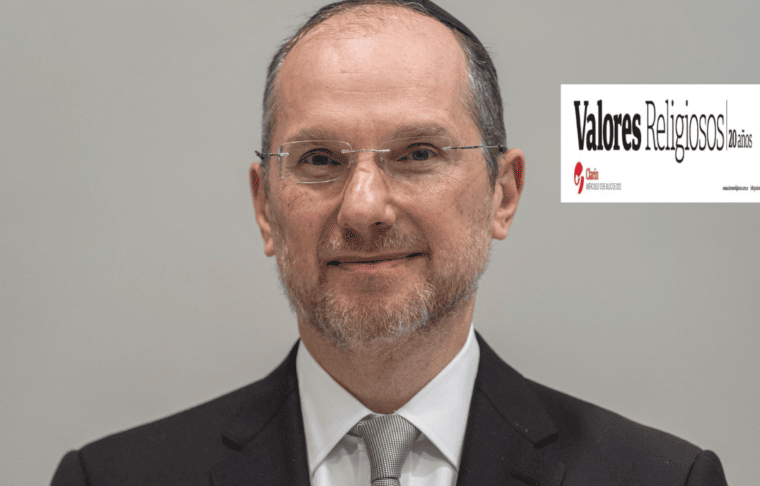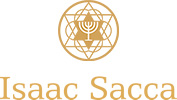Rosh Hashanah: social change begins with each person

By: Isaac Sacca
On the 1st and 2nd days of the Hebrew month of Tishri (this year 2023, from the night of Friday, September 15 to the afternoon of Sunday, September 17), we Jews celebrate the end of the year 5783 and the beginning of the year 5784. The change of cycle is an opportunity for analysis, reflection and evaluation of our life with the aim of correcting errors and improving our behavior.
In Hebrew, this process of analysis, reflection and evaluation is called Teshuvah, which literally means “return.” Let us analyze three teachings from this ancient concept to apply them in our lives.
First: the most accurate translation is “return,” and not the usual translation of “repentance.” The nuance is important because it marks that the root of the human being is good. However, over time, it can deviate from its origin of goodness and become corrupted. The idea is not to regret what one is, but to return to being what one is. In essence, human beings are noble, but they are prone to covering themselves with vices.
Second: the word “return” implies an action, not just an abstract idea. Teshuvah is not a purely sentimental process, but also a change in the actions we perform. It is not possible to change the essence with just a thought; you have to generate a change in behavior. Emotions are inherent to actions; actions generate profound changes in personality. Contrary to what some think, it is not correct to say that the one who is good does good. On the contrary, the one who does good becomes good. Personality is not acquired with abstract and ideological values but through concrete facts and attitudes, which brand us in the most intimate part of our being. True change begins when we put aside selfishness, comfort and hedonism through practical actions and act concretely with altruistic, supportive and attentive values for the well-being of others.
Third: any return is inevitably a process that is done little by little. We cannot always change our entire personality at once. Therefore, the ideal is to focus on certain aspects of our life. If we have detected fifteen failures, the magnitude of our errors may overwhelm us. Instead of trying to attack fifteen fronts at once, we can start with just one of those fronts. Correcting a bad quality or a bad habit is better than not correcting any. A small change can create the momentum for bigger changes. It is not easy to change behavior from one day to the next, but when we find ourselves facing a new cycle, a new year, we can at least begin to reflect and improve little by little.
Fourth: return implies returning to a place of belonging: a group provides a social framework. In other words, it is about becoming part of society again. The change is not only individual but also social: changing the mentality of civil society begins with small changes in our individual behavior.
The return to one’s own essence of goodness can be done at any time. Rosh Hashanah invites us to begin the process of change. I hope we take advantage of this great opportunity and return renewed, with clear strengths and strategies to do good.
* Sephardi Chief Rabbi of Argentina
Rosh Hashanah: social change begins with each person
By: Isaac Sacca
On the 1st and 2nd days of the Hebrew month of Tishri (this year 2023, from the night of Friday, September 15 to the afternoon of Sunday, September 17), we Jews celebrate the end of the year 5783 and the beginning of the year 5784. The change of cycle is an opportunity for analysis, reflection and evaluation of our life with the aim of correcting errors and improving our behavior.
In Hebrew, this process of analysis, reflection and evaluation is called Teshuvah, which literally means “return.” Let us analyze three teachings from this ancient concept to apply them in our lives.
First: the most accurate translation is “return,” and not the usual translation of “repentance.” The nuance is important because it marks that the root of the human being is good. However, over time, it can deviate from its origin of goodness and become corrupted. The idea is not to regret what one is, but to return to being what one is. In essence, human beings are noble, but they are prone to covering themselves with vices.
Second: the word “return” implies an action, not just an abstract idea. Teshuvah is not a purely sentimental process, but also a change in the actions we perform. It is not possible to change the essence with just a thought; you have to generate a change in behavior. Emotions are inherent to actions; actions generate profound changes in personality. Contrary to what some think, it is not correct to say that the one who is good does good. On the contrary, the one who does good becomes good. Personality is not acquired with abstract and ideological values but through concrete facts and attitudes, which brand us in the most intimate part of our being. True change begins when we put aside selfishness, comfort and hedonism through practical actions and act concretely with altruistic, supportive and attentive values for the well-being of others.
Third: any return is inevitably a process that is done little by little. We cannot always change our entire personality at once. Therefore, the ideal is to focus on certain aspects of our life. If we have detected fifteen failures, the magnitude of our errors may overwhelm us. Instead of trying to attack fifteen fronts at once, we can start with just one of those fronts. Correcting a bad quality or a bad habit is better than not correcting any. A small change can create the momentum for bigger changes. It is not easy to change behavior from one day to the next, but when we find ourselves facing a new cycle, a new year, we can at least begin to reflect and improve little by little.
Fourth: return implies returning to a place of belonging: a group provides a social framework. In other words, it is about becoming part of society again. The change is not only individual but also social: changing the mentality of civil society begins with small changes in our individual behavior.
The return to one’s own essence of goodness can be done at any time. Rosh Hashanah invites us to begin the process of change. I hope we take advantage of this great opportunity and return renewed, with clear strengths and strategies to do good.
* Sephardi Chief Rabbi of Argentina

